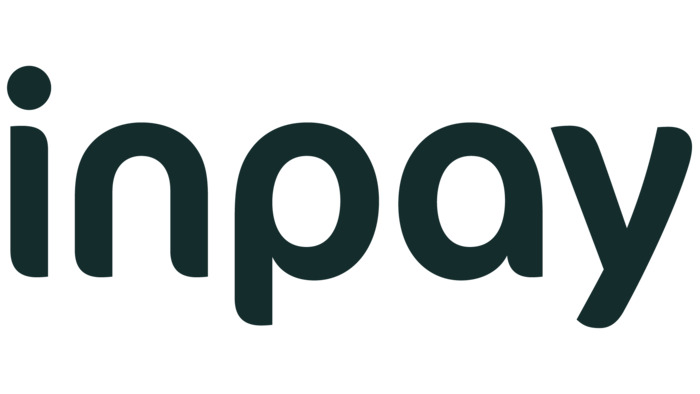Overview of Inpay
Inpay is a Danish financial technology company that has established itself as a trusted payment service provider in the iGaming industry. With 16 years of experience, Inpay has gained a reputation for delivering secure, fast, and cost-effective cross-border payment solutions that serve as an alternative to traditional SWIFT transfers. The company processes millions of transactions annually, with 11.9 million transactions reported in 2023.
| Feature | Description |
|---|---|
| Founded | 2008 by Jacob Tackmann Thomsen |
| Headquarters | Copenhagen, Denmark |
| Regulation | Danish Financial Supervisory Authority (FSA) |
| Transaction Coverage | 200+ countries |
| Number of Employees | 197 FTEs (end of 2023) |
| Services | Cross-border payouts, Open Banking enabled pay-ins, peer-to-peer payments |
| Integration | Single API, single contract, single point of reconciliation |
| Transaction Success Rate | More than 99% of payments completed efficiently |
What is Inpay?
Inpay is a comprehensive cross-border payment solution that provides fast, secure, and cost-effective bank transfers across multiple currencies and jurisdictions. The system serves as a superior alternative to traditional SWIFT transfers, offering real-time transactions with reduced fees. Inpay’s technology connects global banking networks through smart payment routing, leveraging risk-based scoring scenarios to ensure compliance and customer trust.
As a payment processor specifically suited for the iGaming sector, Inpay enables operators to facilitate both deposits and withdrawals in local currencies across more than 200 countries worldwide. The company’s focus on providing multi-currency capabilities through a single integration point makes it particularly valuable for online casinos and sportsbooks operating in multiple markets.
Inpay History
Inpay was founded in 2008 by Jacob Tackmann Thomsen following a humanitarian crisis in Myanmar. After a devastating cyclone killed over 100,000 people, Thomsen discovered the difficulties and high costs associated with sending money internationally to help victims. Frustrated by the slow transfer times and excessive fees, he established Inpay to create a more efficient cross-border payment system.
Since its inception, the company has experienced significant growth. From just 42 employees in 2018, Inpay expanded to 197 full-time employees by the end of 2023. In 2021, Inpay was recognized by the Financial Times as one of Europe’s fastest-growing fintech companies, demonstrating its successful trajectory in the global payments industry. Throughout its 16-year history, Inpay has developed deep expertise in the payments value chain, particularly serving some of the most complex corridors and customer needs in the iGaming sector.
How to Integrate Inpay
Before diving into technical integration details, it’s important to understand the streamlined approach Inpay offers for iGaming operators. The company provides a single API integration that covers both pay-in and payout services, simplifying what can otherwise be a complex process. This integrated approach allows online casinos and sportsbooks to implement a comprehensive payment solution through one contract and with a single point of reconciliation.
The integration process typically begins with establishing a business relationship with Inpay. As a regulated financial institution, Inpay will conduct due diligence on your iGaming operation to ensure compliance with relevant regulations. Once approved, the technical integration can proceed through their API documentation and developer resources.
For technical implementation, Inpay provides detailed API specifications, sandbox testing environments, and developer support to ensure a smooth integration. The system is designed to work with various backend systems common in the iGaming industry. Implementation timeframes vary depending on your platform’s complexity, but Inpay’s experience in the gaming sector enables them to anticipate common challenges and provide targeted solutions.
Post-integration, Inpay assigns a dedicated account manager to each client, ensuring personalized service and ongoing support. This relationship-focused approach helps iGaming operators navigate any issues that may arise during the operation of the payment system.
How Inpay Functions as a Casino Payment Solution
Implementing effective payment solutions is critical for online casino operations. Inpay offers a comprehensive system that handles both deposits and withdrawals seamlessly across borders and currencies. Their solution is particularly valuable for iGaming businesses looking to expand globally while providing local payment options that players trust.
Depositing Funds with Inpay
The deposit process with Inpay in an online casino environment follows a structured and secure flow designed to maximize convenience while maintaining compliance standards. For players, the process begins by selecting Inpay as their payment method in the casino’s cashier section after logging into their account.
The technical process works as follows:
- The casino sends payment files to Inpay via SWIFT MT103 format or through the API integration
- Inpay’s system screens the payments and confirms the funding details
- Inpay then sends instructions to their financial institution partner in the receiving country to complete the payment
- The casino receives the funds in local currency in real-time without deductions
This system allows for rapid transaction processing, significantly faster than traditional bank transfers. For casino operators, the key benefit is the ability to accept payments from players in multiple countries without needing to establish banking relationships in each jurisdiction. The solution particularly shines in emerging markets where traditional payment methods may have limitations or high costs.
Withdrawing Funds with Inpay
Withdrawals through Inpay function as the reverse of the deposit process, allowing casino operators to send winnings back to players efficiently. The system supports bank transactions for withdrawals, ensuring funds reach players’ accounts securely.
For iGaming operators, this functionality is critical as withdrawal speed directly impacts player satisfaction and retention. Inpay’s cross-border capabilities enable casinos to process payouts to players worldwide without incurring the high fees typically associated with international transfers.
The withdrawal process utilizes the same secure technology infrastructure as deposits, with transactions routed through Inpay’s global banking network. This approach enables same-day or next-day settlement in many corridors, significantly faster than the 3-5 business days typically required for traditional international bank transfers.
Pros and Cons of Using Inpay at Online Casinos
When evaluating any payment solution for your iGaming business, it’s essential to consider all aspects of the service. Inpay offers numerous advantages but also has certain limitations that may impact its suitability for your specific needs.
Pros of Inpay
Inpay provides several compelling benefits for iGaming operators looking to enhance their payment processing capabilities:
- Cost-effectiveness: Inpay transactions are more affordable than traditional wire transfers, reducing operational expenses for casino operators and potentially allowing for lower minimum deposit thresholds for players.
- Regulatory compliance: As an FSA-regulated financial institution, Inpay meets strict European regulatory standards, helping iGaming operators maintain compliance in multiple jurisdictions.
- Global reach: With availability in over 200 countries, Inpay enables operators to expand into new markets without establishing local banking relationships in each territory.
- Security features: Inpay implements advanced fraud detection systems and follows the latest security protocols in fintech, protecting both operators and players from fraudulent activities.
- Transaction speed: Players receive funds in real-time, eliminating the delays typically associated with international transfers and enhancing the overall user experience.
- Multi-currency support: The ability to handle transactions in various currencies through a single integration simplifies accounting and improves the player experience by allowing them to transact in their local currency.
- High completion rate: Inpay successfully completes more than 99% of payments, providing reliability that is crucial for maintaining player trust.
Cons of Inpay
Despite its many advantages, Inpay has certain limitations that should be considered:
- Bank transaction limitation: Inpay primarily supports bank transactions, which may be restrictive for players who prefer alternative payment methods like e-wallets or cryptocurrencies.
- Integration complexity: While Inpay offers a single API, the integration may still require significant technical resources, especially for smaller operators with limited development capacity.
- Compliance requirements: As a regulated financial service, using Inpay necessitates adherence to strict know-your-customer (KYC) and anti-money laundering (AML) procedures, which may create friction in the user experience.
- Market restrictions: Certain high-risk markets may have limitations or additional requirements when using Inpay due to regional regulations and compliance considerations.
- Dependency on banking infrastructure: Since Inpay leverages the global banking network, issues in local banking systems can potentially impact transaction processing in specific regions.
Safety and Security of Inpay
Inpay operates under the regulation of the Danish Financial Supervisory Authority (FSA), ensuring adherence to European financial standards. This regulatory oversight provides assurance that the company follows proper risk management protocols and maintains sufficient financial reserves to protect client funds.
The payment solution incorporates advanced fraud detection systems designed specifically for cross-border transactions. These systems employ sophisticated algorithms to identify and prevent potentially fraudulent activities before they impact operators or players. Additionally, Inpay follows industry best practices for data encryption and secure communication channels when transferring sensitive financial information.
Inpay’s robust Governance, Risk, and Compliance (GRC) framework is deeply rooted in their commitment to maintaining the highest compliance standards. This comprehensive approach to security enables Inpay to successfully complete more than 99% of payments efficiently while maintaining trust with customers.
For iGaming operators, partnering with a regulated payment provider like Inpay helps address compliance requirements in multiple jurisdictions. The company’s experience in navigating the complex regulatory landscape of online gambling payments is particularly valuable for operators looking to expand into new markets without exposing themselves to unnecessary regulatory risks.
Available Countries
Inpay’s global reach is one of its most significant advantages for iGaming operators seeking to expand internationally. The payment solution is available in more than 200 countries worldwide, enabling casinos and sportsbooks to accept players from diverse markets through a single integration.
The system is particularly effective in regions where traditional payment methods face limitations or excessive costs. In the United States, where online gambling regulations vary by state, Inpay offers a compliant solution that works within the complex regulatory framework. Similarly, in the United Kingdom’s highly regulated gambling market, Inpay provides reliable transaction processing that meets the strict standards imposed by local authorities.
Inpay has also established a strong presence in emerging markets like Brazil, where the company’s compatibility with local banks and payment systems simplifies transactions for players. This global coverage is achieved through Inpay’s extensive network of banking relationships, which allows for local processing of transactions in domestic currencies across multiple continents.
For iGaming operators, this extensive geographical coverage eliminates the need to negotiate separate agreements with payment providers in each market. Instead, a single relationship with Inpay can facilitate payments across most major gambling markets, streamlining expansion efforts and reducing operational complexity.
Summary
The Inpay iGaming payment solution offers a comprehensive cross-border payment system that addresses many of the challenges faced by online casino and sportsbook operators. Founded in 2008 and regulated by the Danish FSA, Inpay has grown into a trusted provider processing millions of transactions annually across more than 200 countries.
Key strengths of the solution include its cost-effectiveness compared to traditional wire transfers, real-time transaction processing, multi-currency support, and high completion rate of over 99%. The single API integration approach simplifies implementation while providing both deposit and withdrawal capabilities essential for iGaming operations.
While primarily limited to bank transactions, Inpay’s global banking network enables operators to offer local payment options in multiple markets without establishing separate banking relationships in each country. This capability is particularly valuable for iGaming businesses pursuing international expansion strategies.
Security and compliance are core elements of Inpay’s offering, with advanced fraud detection systems and a robust GRC framework ensuring transactions meet regulatory requirements across jurisdictions. For iGaming operators navigating the complex regulatory landscape of online gambling, this focus on compliance provides significant value beyond basic payment processing.
By weighing the advantages and limitations outlined in this article, iGaming businesses can make an informed decision about whether Inpay is the right payment solution for their specific needs and growth objectives.


